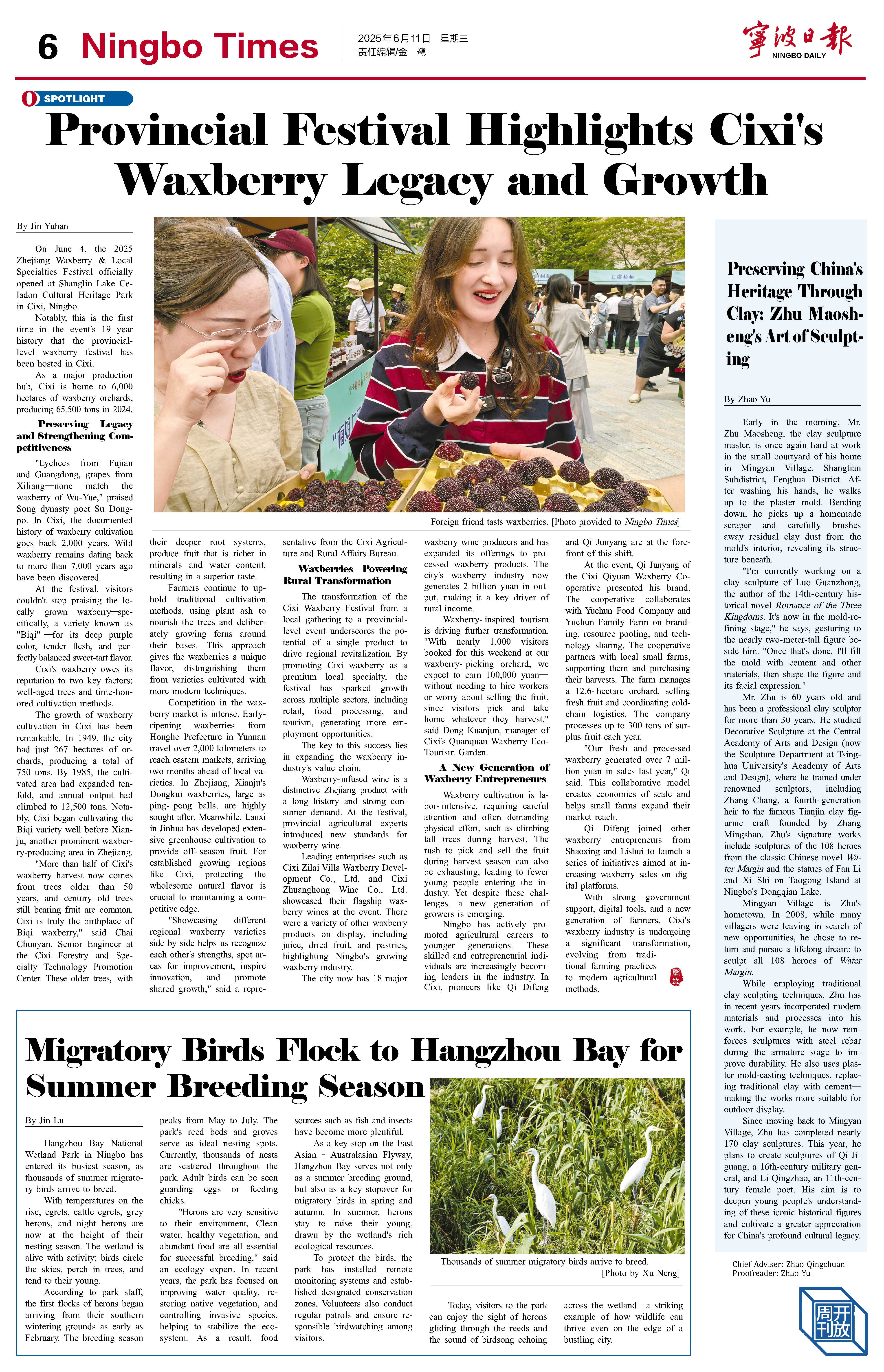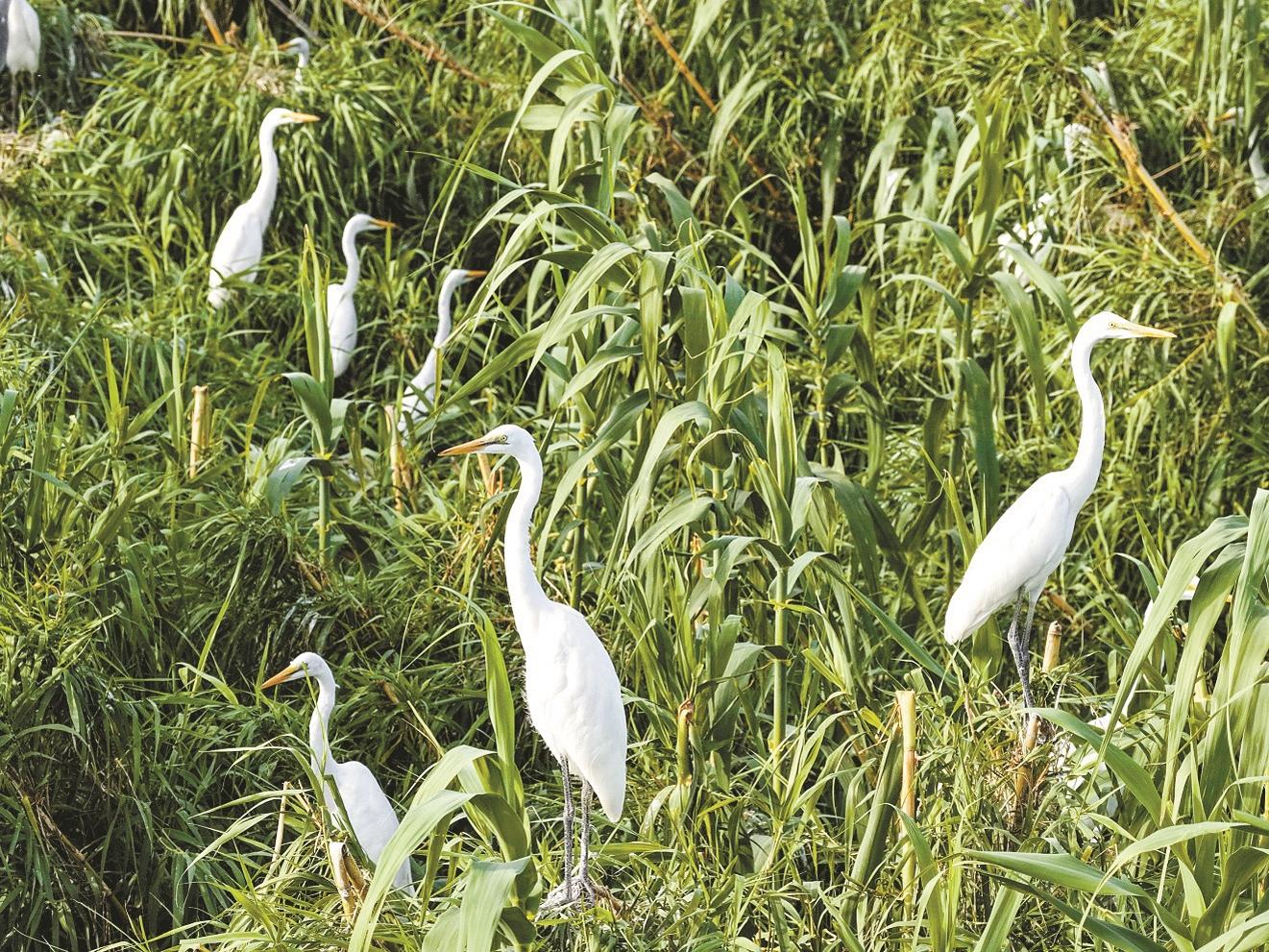By Jin Lu
Hangzhou Bay National Wetland Park in Ningbo has entered its busiest season, as thousands of summer migratory birds arrive to breed.
With temperatures on the rise, egrets, cattle egrets, grey herons, and night herons are now at the height of their nesting season. The wetland is alive with activity: birds circle the skies, perch in trees, and tend to their young.
According to park staff, the first flocks of herons began arriving from their southern wintering grounds as early as February. The breeding season peaks from May to July. The park's reed beds and groves serve as ideal nesting spots. Currently, thousands of nests are scattered throughout the park. Adult birds can be seen guarding eggs or feeding chicks.
"Herons are very sensitive to their environment. Clean water, healthy vegetation, and abundant food are all essential for successful breeding," said an ecology expert. In recent years, the park has focused on improving water quality, restoring native vegetation, and controlling invasive species, helping to stabilize the ecosystem. As a result, food sources such as fish and insects have become more plentiful.
As a key stop on the East Asian–Australasian Flyway, Hangzhou Bay serves not only as a summer breeding ground, but also as a key stopover for migratory birds in spring and autumn. In summer, herons stay to raise their young, drawn by the wetland's rich ecological resources.
To protect the birds, the park has installed remote monitoring systems and established designated conservation zones. Volunteers also conduct regular patrols and ensure responsible birdwatching among visitors.
Today, visitors to the park can enjoy the sight of herons gliding through the reeds and the sound of birdsong echoing across the wetland—a striking example of how wildlife can thrive even on the edge of a bustling city.



